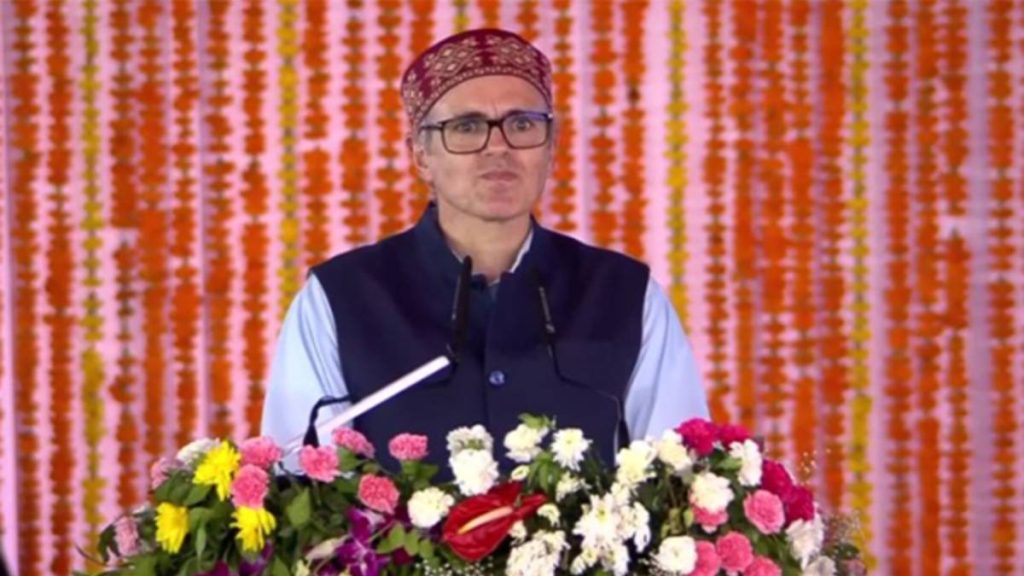Jammu and Kashmir Chief Minister Omar Abdullah on Friday voiced optimism about the restoration of statehood to the Union Territory, expressing confidence that Prime Minister Narendra Modi would be the one to make it happen.
Speaking at the Katra railway station during the launch of two Vande Bharat Express trains by PM Modi, CM Abdullah reflected on the region’s changing political landscape and the central government’s evolving role in Jammu and Kashmir.
“It’s been my good fortune to be part of several significant railway events. From the inauguration of the Anantnag station to the Banihal tunnel, and now again here in Katra,” Abdullah said, recalling past milestones. “In 2014, just after your first election win, you inaugurated this station. You’ve now won three terms as PM. I’m confident that under your leadership, Jammu and Kashmir will once again be granted statehood,” he added.
The event was attended by Prime Minister Modi, Union Railways Minister Ashwini Vaishnaw, Lieutenant Governor Manoj Sinha, and Union Minister Jitendra Singh.
Highlighting the transformative power of infrastructure, LG Manoj Sinha said, “The dream of connecting Kashmir to Kanyakumari is being realised. The Chenab bridge isn’t just made of concrete and steel—it’s a bridge to the hopes and aspirations of Jammu and Kashmir.”
Earlier in the day, Prime Minister Modi inaugurated two engineering marvels in Reasi—the Chenab Railway Bridge, the world’s highest railway arch bridge, and Anji Khad Bridge, India’s first cable-stayed railway bridge. These are part of the ₹43,780 crore Udhampur-Srinagar-Baramulla Rail Link (USBRL) project, which aims to deliver all-weather, seamless rail connectivity between Kashmir and the rest of India.
The newly flagged off Vande Bharat trains will drastically cut travel time between Katra and Srinagar from 6–7 hours by road to just about 3 hours. Equipped to withstand the Valley’s cold climate, the trains are expected to benefit residents, tourists, and pilgrims alike.
The USBRL project spans 272 km and features 36 tunnels (covering 119 km) and 943 bridges—overcoming major geographical and seismic challenges. It marks a significant stride in integrating Jammu and Kashmir more closely with the national mainstream through infrastructure-driven development.
